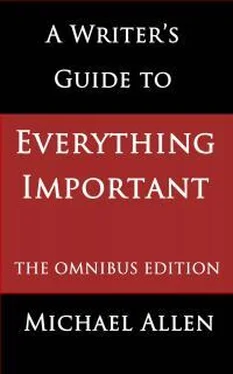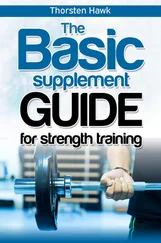Let’s see what has happened to publishers in the last 15 years, and how they have responded. Then we’ll look at the knock-on effects on agents, and what changes they have made, simply in order to survive.
Historically speaking, publishers were themselves jumped-up little interlopers. In the early days of printed books there were simply authors and printers. The author wrote a book and then took it along to his local printer, where he struck some sort of a deal. Before long the printers found it convenient to become printer-booksellers. The printing machine was in the back room of a house on a busy street, and the front room was turned into a shop to sell the products.
It was only later that some unscrupulous fellows who called themselves publishers wormed their way into this perfectly satisfactory existing arrangement. Mind you, the memory of how they’d done that didn’t stop the publishers from complaining bitterly about a new set of middlemen, the agents, when the agents likewise slid themselves artfully in between the writers and the publishers.
Now the really fascinating thing about the twenty-first century book scene is this. Within 15 years it has been demonstrated beyond doubt that, for narrative fiction and non-fiction (the sort which does not require any pictures or complicated footnotes), ebooks are an ideal medium. And, where ebooks are concerned, neither the agents nor the publishers are required at all. For ebooks there are authors, and the printer-bookseller (let’s say Kindle-Amazon). And then there’s the reader. That’s the bare minimum; all else is distraction.
This reduction in the number of parties involved (and hence in those taking a slice of the money) even has a fancypants name: it’s called disintermediation.
The possibility of disintermediation has come as a nasty shock to some publishers and agents. And some of us, I’m sorry to say, find it hard to resist having a damn good laugh. But the agents and publishers can’t say they weren’t warned.
Around the turn of the century, Jason Epstein wrote a book entitled Book Business ; in the US it was published 2001. This book was an examination of present practice in publishing, and also provided a far-sighted glimpse into the future. Epstein was unusually well qualified to write such a book, because he had been editorial director of Random House, in New York, for forty years.
It was also around the turn of the century that I myself, in England, was setting up small publishing company, mainly to publish my own books, under a variety of pen-names; I intended to take full advantage of the new POD technology. This project involved me talking to wholesalers, printers, booksellers, other publishers, library staff, and, not least, readers. Wherever I went I asked as many people as I could whether they had read Epstein’s Book Business. I never found anyone who had.
This did not surprise me, because by then I had concluded that the people who worked in the book business were, as individuals, a pleasure to know; they were people whom you would welcome as neighbours, and perhaps even as suitors for your daughter’s hand. But as professionals, profit-makers, long-term business strategists… Hopeless. Clueless beyond redemption.
Even when his book was published, Epstein had already concluded that successful writers didn’t need really publishers at all. People like Stephen King and Danielle Steel, with massively successful track records, they could quite easily have cut free from agents and publishers, and could have bought in such talent as they needed, in terms of editors, book designers, printers, book distributors, and so forth. By doing so they would probably have earned a great deal more at the end of the day. In practice, however, at that stage, they all chose to continue doing things the old way – but that was presumably because it suited their convenience to do so. (Either that or they weren’t paying any attention either.)
Epstein was a big POD fan, and he predicted a situation whereby a simple coffee shop on your local high street might have a printing machine parked at the back. You would come in the door, order a coffee of your choice, and then order the latest J.K. Rowling to take out with you fifteen minutes later.
That arrangement has not quite come to fruition yet, but there is now a contract in force between Xerox and Kodak to run such a facility through the Kodak photographic printing shops.
Summary: Since 2000, developments in digital technology have given writers, agents, publishers, printers, and – not least – readers, plenty to think about.
Writers are, I repeat (because it bears repeating) no longer obliged to go knocking on agents’ doors if they don’t want to; they don’t have to sign less than generous publishers’ contracts if they don’t want to; publishers have tried hard to make truckloads of money by illegally conspiring to fix the prices of ebooks, and have failed, resulting in multi-million dollar fines from the US department of Justice; and readers have discovered that digital ebook readers are a very convenient way to carry around books, and that they can buy lots of good reading at modest prices, or even get ebooks free.
4.3.1 Some real-life examples of how life has become difficult for publishers
In 2010, Jason Epstein’s statement, that writers don’t really need publishers at all, was validated, at least in respect of popular non-fiction.
It was in that year that the marketing guru Seth Godin, author of 12 print bestsellers that have been translated into 33 languages, announced that in future he will no longer work through traditional publishers. Godin argues that, in an ebook world, there are viable ways of cutting publishers out of the loop. (Thus disintermediation ceases to be a concept and now becomes a fact.) In future, Godin and others like him will be able to reach people just as effectively, if not more so, without traditional publishers, and will end up making more money.
Prior to coming to this conclusion, Godin had been talking to many established print publishers, and he was unimpressed by what he found. ‘Most of them looked at me like I was nuts for being an optimist. One CEO worked as hard as she could to restrain herself, but failed and almost threw me out of her office by the end. I’d be lying if I said I wasn’t heartbroken at the fear I saw.’
In the three or four years since that time, there have been numerous lesser known authors who have come to the same conclusion as Seth Godin. They have decided to go their own way, without benefit of agent or traditional publisher.
Here’s a minor example from the UK. In 2012, Janet MacLeod Trotter’s novel The Tea Planter’s Daughter was one of the top ten bestselling Kindle ebooks on Amazon.co.uk.
This book was first published in the UK, in hardback, by Headline in 2007, when it had the title The Tea Planter’s Lass ; a paperback came a year later. (Just in case you’re new to this business, let me say that Headline is a major UK publisher of commercial fiction, and many authors would give a couple of teeth to be put on their list.) In addition to the hardback and paperback editions, there were also CD and cassette versions of a talking-book edition, and a large-print edition from Magna.
What Janet MacLeod Trotter had done was republish an old book in ebook form, given it a new cover and a slightly different title, and had made it into a big hit.
Today, if you look at Janet MacLeod Trotter’s own web site, you will see that she is the author of 16 books which were originally published through Headline, beginning in 1993; most of these fall into the family saga or women’s fiction category. She also writes crime fiction under the name J.M. MacLeod.
Furthermore – and this is where it begins to get really interesting – Janet’s web site tells us that she now runs a ‘micro publishing business, specialising in paperbacks and ebooks.’ Its name is MacLeod Trotter Books (MTB).
Читать дальше












